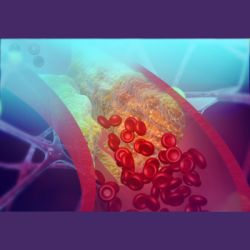Elekta AB and Royal Philips Electronics have announced that they will expand a joint program to develop a breakthrough in cancer care with an imaging treatment platform that merges radiation therapy and magnetic resonance imaging (MRI) technology in a single treatment system. The programme for development will include a research consortium of leading radiation oncology centers and clinicians, which today includes the University Medical Center Utrecht (the Netherlands).
The establishment of the consortium marks the next step in the collaboration between Elekta, a pioneer in neurosurgery and radiation therapy systems and Philips, a leader in medical imaging systems. The consortium's mission will be to merge precision radiation delivery with MRI in a single MRI-guided radiation therapy system. This will enable doctors to achieve exceptional soft tissue imaging during radiation therapy and to adapt treatment delivery in real-time for extremely precise cancer treatments.
"Bringing the superior soft tissue imaging of MRI and precise radiotherapy together in one device could potentially revolutionise cancer care," said Tomas Puusepp, President and CEO of Elekta AB. "The need to maximise therapeutic radiation on the target, while minimising the exposure of healthy tissue is entirely driven by the best interests of the patient – they deserve the best chance for a cure and an improved quality of life."
"Cancer is a major global disease that we hope to control with more targeted treatments," says Gene Saragnese, CEO Imaging Systems at Philips Healthcare. "MRI is emerging in oncology applications because of its excellent real-time 3D visualisation of soft tissue. Together with our partners, all leaders in radiation therapy delivery, we are convinced that the integrated MRI-guided radiation therapy system has the potential to become a game changer in cancer care on a global scale."
Working with University Medical Center Utrecht, the medical device companies have built and tested a prototype system that integrates a linear accelerator and a 1.5 Tesla MRI system. The success of early tests has enabled the project to move to the next phase of development and testing by a select group of consortium partners.
"We are proud and excited about this project," adds Prof. Jan Lagendijk, Department of Radiotherapy, University Medical Center Utrecht. "Elekta, Philips and my department have strived for over a decade to make this possible. Through real-time imaging of both tumors and organs at risk, an integrated MRI-guided radiation therapy system would enable us to see more precisely than ever what we treat, and irradiate just the tumor as it moves in the body during treatment. This could potentially bring significant benefits to patients and overall healthcare economics."
Radiotherapy is one of the primary modalities used to treat cancer, either as a stand alone treatment or used with other modalities such as chemotherapy. The technique involves identifying cancerous tissue and irradiating it with high energy radiation beams in a way that maximizes sparing of healthy tissue near the tumor. Radiation therapy delivered by linear accelerators and medical imaging already play an essential role in treatment planning, delivery and after care and is a proven cost-effective and safe method for treating patients with cancer.






















